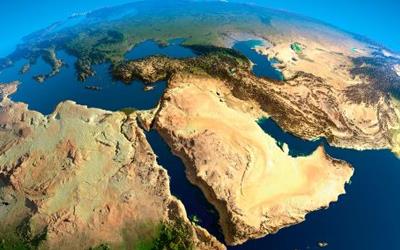Inspired by Ahmet Özcan’s visionary article, “The Tigris-Euphrates Federation”, I began to imagine the economic infrastructure that could support such a federation. Building political structures without strong economic foundations often leads to short-lived entities.
As we know, European nations sowed the seeds of today’s European Union by establishing a union centered on coal and steel, vital economic resources over which they had fought two world wars. The heterogeneous European continent—comprising diverse ethnicities, sects, and ideologies—achieved its current political unity only through a strong economic foundation established after the last great war.
In contrast, Mesopotamia, which has endured over a century of wars, conflicts, and suffering, has squandered its economic resources and potential to external powers, earning it the label “quagmire” by some. Yet, the emergence of a new Syria after 13 years of civil war and immeasurable loss offers a unique set of opportunities for Mesopotamia. While new pain caused by global hegemonic powers’ plans for the region remains a possibility, it is more productive to focus on how to turn these opportunities into benefits for the entire region. Instead of depleting our energy on pessimistic scenarios, we must focus on the far more likely positive outcomes.
Independent of historical, political, or sociological baggage, I define Mesopotamia as a region comprising Türkiye, Syria, Iraq, Lebanon, Jordan, and Palestine. A political union here—the Tigris-Euphrates Federation—can only endure if built on a solid economic foundation. A purely political union would risk becoming as ineffective as the Economic Cooperation Organization (ECO), the Organization of Islamic Cooperation (OIC), D-8, the Arab League, or the African Union. While these organizations play specific roles on regional and global platforms, it is difficult to argue that they have significantly addressed the needs of the regions and countries they encompass.
Unlike the above organizations, a Mesopotamia Organization for Economic Cooperation and Development (MOECD), established with an executive and effective organizational framework, would have the opportunity to prove itself during Syria’s reconstruction process and later play critical roles in the economic prosperity and development of its member and neighboring countries.
MOECD could comprise founding members Türkiye, Syria, Iraq, Lebanon, Jordan, and Palestine; partner participants such as Saudi Arabia, Qatar, the UAE, Kuwait, Iran, and Oman; supporting entities like Germany, France, the UK, and the European Union; and observer states including the United States, Brazil, China, and Russia. Such an organization could potentially alter the fate and history of the region, laying a strong foundation for any future political union.
Naturally, the question arises: What would prevent this organization from becoming as ineffective as its predecessors? Such a risk always exists. However, the key to minimizing this risk lies in designing the organization as a directly executive structure and testing this framework during Syria’s reconstruction process.
Managing resources for Syria’s reconstruction, determining strategic, sectoral, and project-level priorities, ensuring coordination both among donor and creditor countries and within Syrian institutions, closely monitoring and reporting implementation, and many other responsibilities would provide a litmus test for MOECD’s functionality and efficacy.
Our aspirations are vast—for Syria, Türkiye, the region, and, indeed, all the world’s oppressed. Let us never stop dreaming, but let us also go beyond mere dreams. Let us transform those dreams and ideas into mechanisms, actions, and systems.
History does not always present us with opportunities for great transformations.
Let us hope that this time, our dreams become reality and that a door to peace and prosperity truly opens wide for Mesopotamia.


